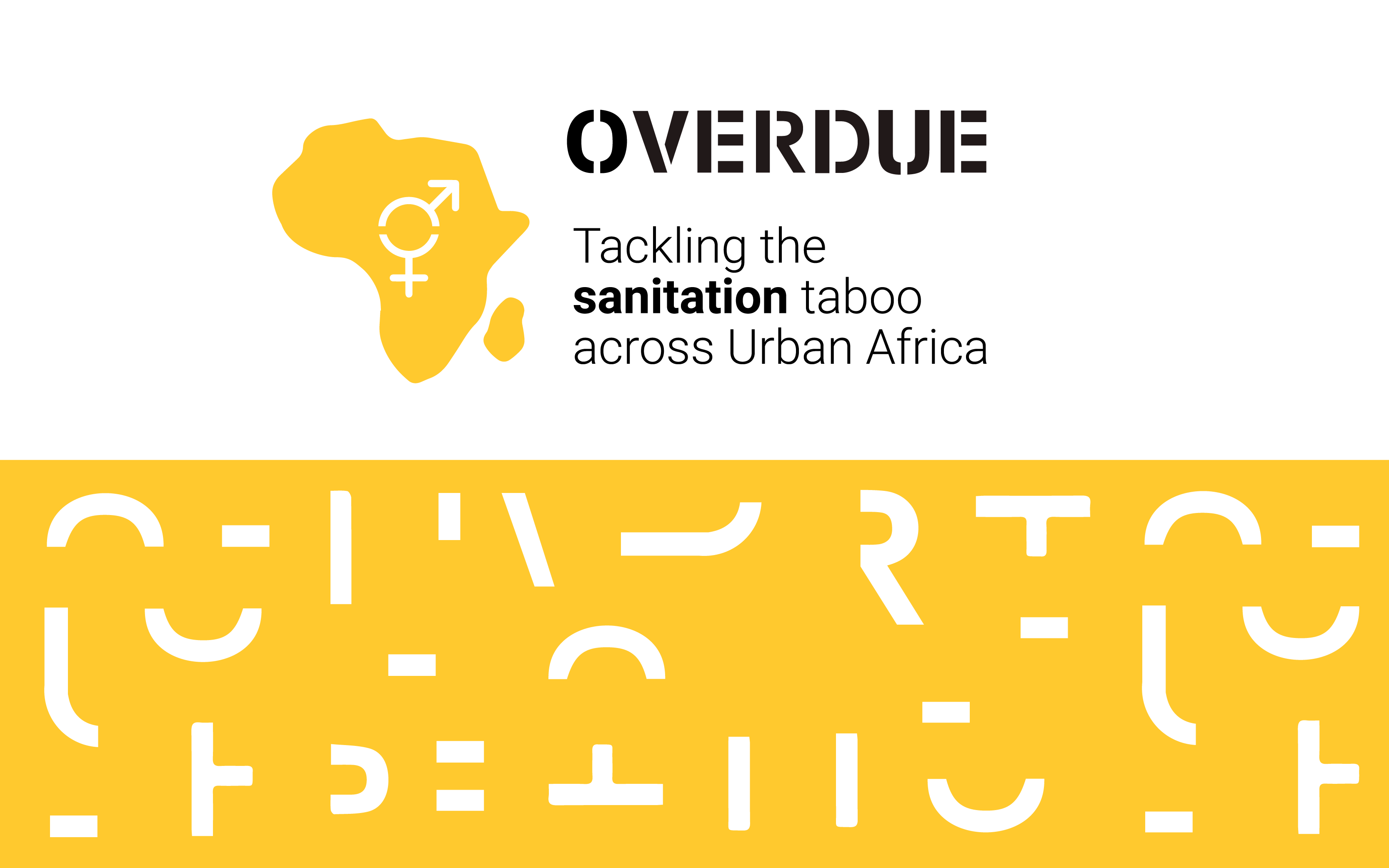OVERDUE - Tackling the sanitation taboo across urban Africa
The project aims to interrogate the sanitation taboo across Urban Africa, as a site where everyday crises exacerbate and are exacerbated by health crisis like COVID19

26 June 2020
Sanitation has long been recognised as a human right - the very basic right to dispose safely of human waste - yet we witness a persistent everyday rights violation endured by 60% of the urban population in Africa and 2.4 billion people worldwide (JMP 2015 figures).
If sanitation promises have repeatedly been unfulfilled and sidelined, the issue has certainly not remained out of sight to the millions of women, girls, men and boys who cope with infrastructural neglect and inflated sanitation costs. However, dominant, and permanent, crisis discourses, have often subtly depoliticized, technicised and individualized their needs.
Considering the urban sanitation challenge as a “taboo”, an unspoken and marginalized issue, the OVERDUE project combines an analysis of its materiality and of its imperceptibility, to provide fresh insights on the ‘urban sanitation crisis’. It challenges the way such crisis is framed, bringing to the forefront the experiences and expectations of women and girls, men and boys, ‘formal’ and ‘informal’ sanitation providers and the legacies of overlapping and discontinued interventions. Doing so, it aims to shed light on the gaps, and support the synergies, between grid and off-grid efforts and the wide spectrum of practices in between.
OVERDUE brings together a constellation of academics, practitioners, activists and organisations working in, on, and with the fast-growing and medium-size cities of Beira (Mozambique), Freetown (Sierra Leone), and Mwanza (Tanzania).
- Reframe the dominant narratives about urban sanitation through a critical examination of sanitation problems and solutions. To do so, we will track down past, ongoing and projected infrastructural investments, scrutinising their political economy and the way these define and tackle ‘sanitation deficits’. We will especially interrogate how historical and colonial narratives, as well as access to land (as space) to install both grid and off-grid sanitation, explain many of the gaps between promises and practices, and contribute to the reproduction of the sanitation taboo.
- Explore experiences and sanitation trajectories on the ground, to understand how gender, race, class, age, parentality, and housing and land tenure security intersect to shape sanitation practices in space and time. We will focus on how sanitation users and providers, from residents to administrators, technicians, janitors and vacuum truck drivers to latrine emptiers, make sanitation as they use, construct, maintain, or repair infrastructures.
- Take stock of ongoing experimentation towards equitable sanitation across the continent. Departing from the analysis of a recurrent “sanitation crisis”, which might inadvertently reproduce it and prevent us from supporting sanitation justice, we will examine the emergence and unfolding of sanitation arrangements, fostering regional dialogue and exchanges across Lusophone, Anglophone and Francophone Africa. The ultimate aim is to bridge policy measures (how this is done and by whom) and practical solutions (what is working, for whom and why).
- Project aims
- We will work together to:
- 1. Reframe the dominant narratives about urban sanitation through a critical examination of sanitation problems and solutions, tracking down past, ongoing and projected infrastructural investments and the way these define and tackle ‘sanitation deficits’. We will especially interrogate how historical and colonial narratives, as well as access to land to install and maintain both grid and off-grid sanitation, contribute to gaps between promises and practices, and to the reproduction of the sanitation taboo.
- 2. Explore experiences and sanitation trajectories on the ground, to understand how gender, race, class, age, ability, and land tenure security intersect to shape sanitation practices in space and time. We will focus on how sanitation users and providers, from women, girls, men, and boys who maintain household facilities, to administrator, technicians, vacuum truck drivers to latrine emptiers, make sanitation as they use, construct, clean, or repair infrastructures.
3. Take stock of ongoing experimentation towards just sanitation across the continent. Departing from the analysis of a recurrent “sanitation crisis”, which might inadvertently reproduce it and prevent us from supporting sanitation justice, we will examine the emergence and unfolding of sanitation arrangements, fostering regional dialogue and exchanges across post-colonial situations and French-, English- and Portuguese colonial legacies. The aim is to bridge policy measures (how this is done and by whom) and practical solutions (what is working, for whom and why).
4. Our team will work closely with sanitation providers, grass-roots organisations, and local authorities, drawing on African and urban studies, feminist political ecology and technology studies, to support just sanitation pathways.
- Project team
The team includes Pascale Hofmann, Julian Walker, Colin Marx and Nelly Leblond at DPU, working in close collaboration with African-based research institutions (Ardhi University and the Centre for Community Initiatives in Tanzania, Sierra Leone Urban Research Centre and COWI Mozambique), community based and grassroots organizations, as well as international and regional organizations (COWI Denmark, L’Etre Egale in France).
Read more about the team on the OVERDUE website.
For more information, please contact Prof. Adriana Allen (a.allen@ucl.ac.uk) or Nelly Leblond (n.leblond@ucl.ac.uk), or visit the OVERDUE project website.
 Close
Close

